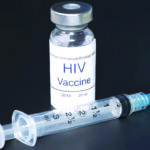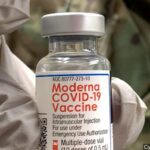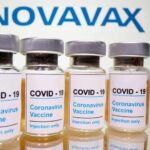Pregnant Women’s New Tool: FDA Greenlights Abrysvo Vaccine to Safeguard Newborns from RSV

In a major development, the U.S. Food and Drug Administration (FDA) has granted approval for the Abrysvo vaccine, potentially equipping women with a shield against respiratory syncytial virus (RSV) during pregnancy. This breakthrough could mark a significant stride in safeguarding newborns against the virus. The vaccine, created by Pfizer, has been designated Abrysvo.
Tailored to be administered to expectant mothers between the 32nd and 36th week of gestation, Abrysvo aims to fortify infants against RSV from birth up to six months of age, addressing the risk of severe respiratory ailments. However, its comprehensive authorization hinges on the U.S. Centers for Disease Control and Prevention’s (CDC) approval.
Dr. Peter Marks, Director of the FDA’s Center for Biologics Evaluation and Research, emphasized the importance of this achievement, given that RSV frequently affects children, with infants particularly susceptible to severe manifestations that can culminate in hospitalization. He affirmed that this authorization offers a protective option for both healthcare providers and pregnant individuals to counteract the perils of this potentially life-threatening disease.
RSV, though posing a genuine threat to newborns, does not discriminate by age. The FDA points out that RSV is the prevailing cause of lower respiratory tract infections in infants on a global scale, predominantly circulating during fall and winter. This virus commonly targets children, with most cases emerging before children reach their second birthday.
RSV’s symptoms often mimic those of a common cold but can escalate into grave lower respiratory complications, encompassing pneumonia and bronchiolitis. The initial year of life constitutes the period of heightened risk, a fact underscored by the FDA.
Remarkably, RSV stands as the principal cause of infant hospitalization within the United States, as documented by the CDC. Presently, infants’ sole protection against RSV lies in an artificially synthesized antibody injection named Beyfortus. The first one-shot iteration of this solution, tailored for infants below eight months of age, has recently gained endorsement, to be administered preceding their initial RSV season after birth.
Pfizer envisions that Abrysvo holds the potential to avert around 320,000 infant doctor visits and mitigate the need for 20,000 annual hospitalizations if a substantial number of pregnant women receive the vaccine, as reported by the Associated Press.
Administration of the vaccine involves a single-dose injection into the muscle. This treatment parallels the medication that obtained FDA and CDC approval in May, offering defense against RSV-linked illness for individuals aged 60 and above.
The vaccine’s safety and effectiveness underwent rigorous clinical trials. Within a cohort of approximately 3,500 pregnant women administered Abrysvo and an equivalent number who received a placebo, the vaccine exhibited an almost 82% reduction in severe illness within three months post-birth, and a roughly 69% reduction until the infant reached six months of age.
In a specific subgroup of pregnant individuals – comprising 1,500 Abrysvo recipients and 1,500 placebo recipients – the trial demonstrated that Abrysvo reduced the risk of respiratory illness by about 35% and curtailed the risk of severe lower respiratory tract disease by over 91% within three months post-birth compared to the placebo.
By the time an infant reached six months of age, Abrysvo showcased a decrease of about 57% in RSV respiratory illness risk and an impressive 76.5% reduction in severe illness risk when contrasted with the placebo, according to the FDA’s observations.
Safety evaluations encompassed two studies – one involving roughly 7,200 women, half of whom received Abrysvo, and the other involving approximately 200 pregnant women, half of whom also received Abrysvo. Common side effects encompassed localized pain at the injection site, headaches, muscle discomfort, and nausea.
The FDA acknowledged that pregnant recipients of Abrysvo exhibited a slightly higher incidence of a perilous hypertensive pregnancy disorder, known as pre-eclampsia (1.8% compared to 1.4% in the placebo group). Similarly, a greater occurrence of low birth weight and jaundice was noted in infants of pregnant individuals who received Abrysvo.
The prescribing information for Abrysvo will incorporate a cautionary note about a “numerical imbalance” in preterm births among Abrysvo recipients – 5.7% versus 4.7% in those who received a placebo. The data does not yet suffice to establish a causal relationship between the vaccine and preterm births, but it serves as a precautionary alert to healthcare professionals.
Further studies mandated by the FDA will delve into the risks associated with preterm birth and pre-eclampsia tied to Abrysvo.
This pivotal approval was facilitated under the FDA’s Fast Track and Breakthrough Therapy designations, signifying a milestone in advancing protection against RSV for pregnant women and their newborns.





